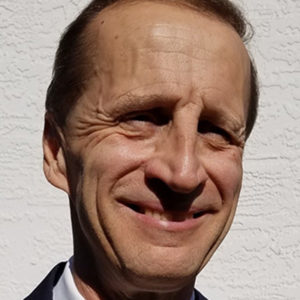This talk originates with a real Star Wars episode. Dubbed “Star Wars” by the press, the Strategic Defense Initiative (SDI) announced by President Reagan demanded unprecedented computing capabilities be deployed in space. SDI launched research efforts, conducted by the Air Force, to meet those computing demands. Designing and building the microprocessors for SDI demanded innovation in many areas of computing – including how to measure the correctness and performance of, at that time, such radically new designs. Some of the subsequent results were cleared for public release and published. Hard-earned lessons from that era are shared with academia for teaching advanced computer architecture.

This talk will delve into one such lesson: how to derive meaningful benchmark data of experimental processor designs before advancing them to physical design.
Dr. Kevin A. Kwiat was formerly a Principal Computer Engineer with the U.S. Air Force Research Laboratory (AFRL) in Rome, New York, with more than 34 years of federal service. During that time, he conducted research and development in a wide scope of areas: high-reliability microcircuit selection for military systems; testability; logic and fault simulation; rad-hard microprocessors; benchmarking of experimental designs; distributed processing systems; assured communications; FPGA-based reconfigurable computing; fault tolerance; survivable systems; game theory;
cyber-security; and cloud computing.
He received a B.S. in Computer Science, a B.A. in Mathematics from Utica College of Syracuse University, an M.S. in Computer Engineering, and a Ph.D. in Computer Engineering from Syracuse University. He holds six patents. Dr. Kwiat is now a co-founder and Chief Research Engineer for Haloed Sun TEK in Sarasota, Florida – an LLC specializing in technology transfer and currently supported by the U.S. Department of Commerce. Haloed Sun TEK recently joined forces with the CAESAR (Commercial Applications of Early Stage Advanced Research) Group.
Dr. Kwiat is also continuing his 30 years of professorial activity. He teaches in the Department of Computer Science and the Department of Network and Computer Security at the State University of New York Polytechnic Institute, and he is a research associate professor with the University at Buffalo. Currently, he is investigating hardware security and trust under the auspices of a National Research Council Fellowship.